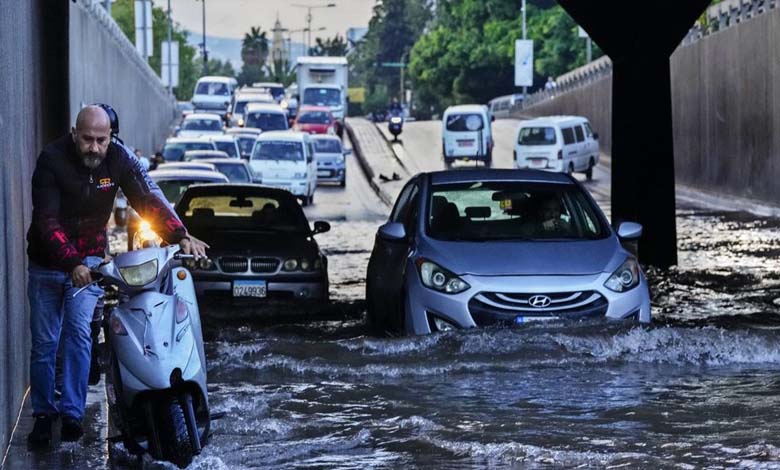In the first rainfall… Beirut roads face destructive flooding… Details
Beirut faces destructive flooding

Lebanon is facing a crisis unlike any other country on Earth, with widespread corruption and the impact of climate change hitting the nation. There is significant concern in Lebanon that the situation could reach levels similar to what Derna recently experienced.
Violent floods have struck Beirut, leading to traffic disruptions and turning some roads into rivers due to the sudden deluge that hit the country unexpectedly.
Streets submerged in water
Rainwater inundated several areas in Lebanon and turned some roads into flowing rivers that carried away vehicles, halting traffic. Tanius Paulus, the Director-General of Roads and Buildings at the Ministry of Public Works and Transport, said, “Ministry crews are working regularly to address road problems, and today we are facing an issue with clogged drains due to the abundance of waste.”
Paulus explained that the condition of the roads under the ministry’s jurisdiction was good, while the roads that experienced flooding were outside the ministry’s responsibility.
He emphasized that the Ministry of Public Works is responsible for the highways, the Ghadir River, and the international highway from north to south.
Beirut turns into water puddles
Images and videos spread on social media from various Lebanese regions showed the aftermath of the destruction caused by the morning rain on Wednesday.
Water gathered in giant puddles on the streets of the capital, causing cars to be stranded since morning before maintenance teams belonging to the Ministry of Public Works intervened to clean drainage channels and facilitate rainwater drainage. Citizens expressed their frustration with this recurring annual situation.
Paulus addressed the issue of Naameh, which falls within the scope of the Ministry of Public Works’ work, pointing out that the problem arose because the road was established without taking into account the watercourse.
Paulus stressed that the responsibility and jurisdiction of the Ministry of Public Works fall within the scope of the international highway, while the water came from a distance of 6 to 7 kilometers from the high mountains. The responsibility in this case lies with the party that transformed the winter watercourse into a road without considering public safety standards and technical standards for securing a watercourse to the sea. Some Lebanese roads experienced very active traffic and heavy congestion.”












